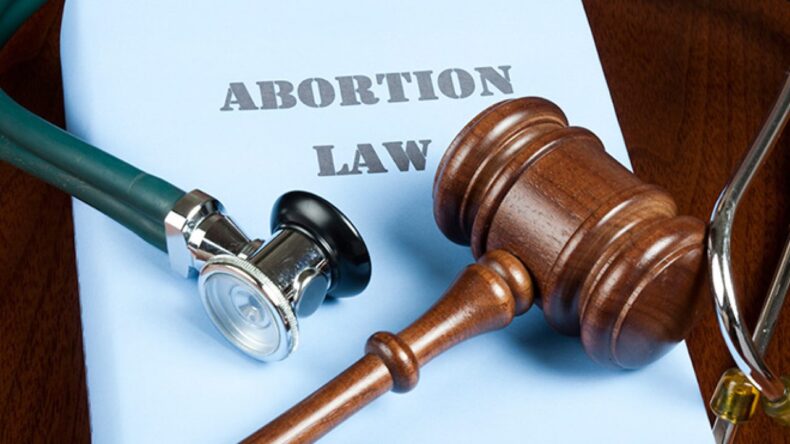Abortion rights are back in conversation partly because of the debate that has been started not only in the US but also in India. The discussion came after the news of millions of women in the US who will lose the constitutional right to abortion after the Supreme Court canceled its 50-year-old Roe v Wade decision. The judgment prepares individual states to ban the procedure.
Human rights are those rights, which should be available to every human being without any discrimination of any kind. The most important right of a human is the right to life. It is the chief human right from which no depreciation is permitted. Article 6(1) of the International Covenant on Civil and Political Rights bans the arbitrary deprivation of life. But there are also some controversial issues related to supreme rights, to name one of them is the question of the Right to abortion. Among other types of rights of women, it is conceived that every mother has a right to abortion since it is a universal right. But the rights of the mother should be leveled with the rights of the unborn.
What is Abortion?
Abortion is the removal of a fetus from the uterus before it has reached the stage of viability. An abortion may occur voluntarily in that case it may also be known as a miscarriage or it may be brought on purposefully which is often called induced abortion.
Abortion as a Human Right
Throughout history, induced abortions have been an origin of debate and controversy. An individual position on abortion can be described as a mixture of their personal beliefs on the ethics of induced abortion. It is a woman’s individual right, right to her life, liberty, and to follow her happiness that permits her right to have an abortion. In recent years, governments from various parts of the world have granted and pledged to advance reproductive rights. There are formal laws and policies which are important indicators of government duty to promote reproductive rights. Every woman has a complete right to have control over her body which is most often known as bodily rights.
A woman has a right to abortion if :
- If the carrying on the pregnancy would demand a risk to her life greater than if the pregnancy were brought to an end.
- The termination is required to prevent heavy permanent injury mental or physical health of the pregnant woman.
- The continuation of the pregnancy would involve risk, greater than if the pregnancy were put to an end, of injury to the physical or mental wellbeing of a pregnant woman.
- Also there is a considerable risk that if the child were born it would suffer from abnormalities.
Abortion and the law in India
Indian law allows abortion if the carrying on of pregnancy would involve a risk to the life of a pregnant woman or causes grave injury to her mental or physical health. Abortion was practiced much earlier. Because the process was illegal it was practiced in a fraudulent manner. With the passing of the active medical termination of pregnancy became legal with also there are certain conditions that are being safeguarded for the health of the mother.
The Indian Penal Code 1860 which is the primary criminal law of the country keeps in view all the religious, moral, social as well as ethical backgrounds of the community of India that has made induced abortion a crime under sections 312 to 316 of IPC 1860. Sec 312 of IPC associates with the unlawful termination of pregnancy. It says whoever voluntarily causes a woman with child to miscarry, shall, if the miscarriage be not caused in good intention and faith for the purpose of saving the life of the woman be punished with imprisonment of either for a term which may even extend to three years or with fine or both and it also says if the woman is quick with child shall also be punished with imprisonment of either for a term which may even exceed to seven years and shall also be fined.
The Medical Termination Pregnancy Bill which was passed by both the Parliament Houses received the assent of the President of India on 10th August 1971. It approached on the Statute Book as the “The MTP Act, 1971”. This law speaks about the Right of Women in India to terminate an accidental pregnancy by a registered medical practitioner in a hospital. The termination of pregnancy can only be done as promised by the registered medical practitioners. It permits the continuation of pregnancy up to 12 weeks and also it requires the opinion of two medical practitioners if the continuation of pregnancy is done between 12 and 20 weeks because of various reasons like
- A risk to the pregnant woman’s life or
- A risk of heavy injury to her mental or physical wellbeing or
- If the pregnancy is caused by rape or
- There is an existence of considerable risk that if the child is born it would either suffer from some mental or physical abnormalities.
This Act does not permit the continuation of pregnancy after 20 weeks.
Conclusion:
India’s abortion laws are indeed meant to liberate its women, it’s an application and authentic elements suffer from some serious mistakes.













